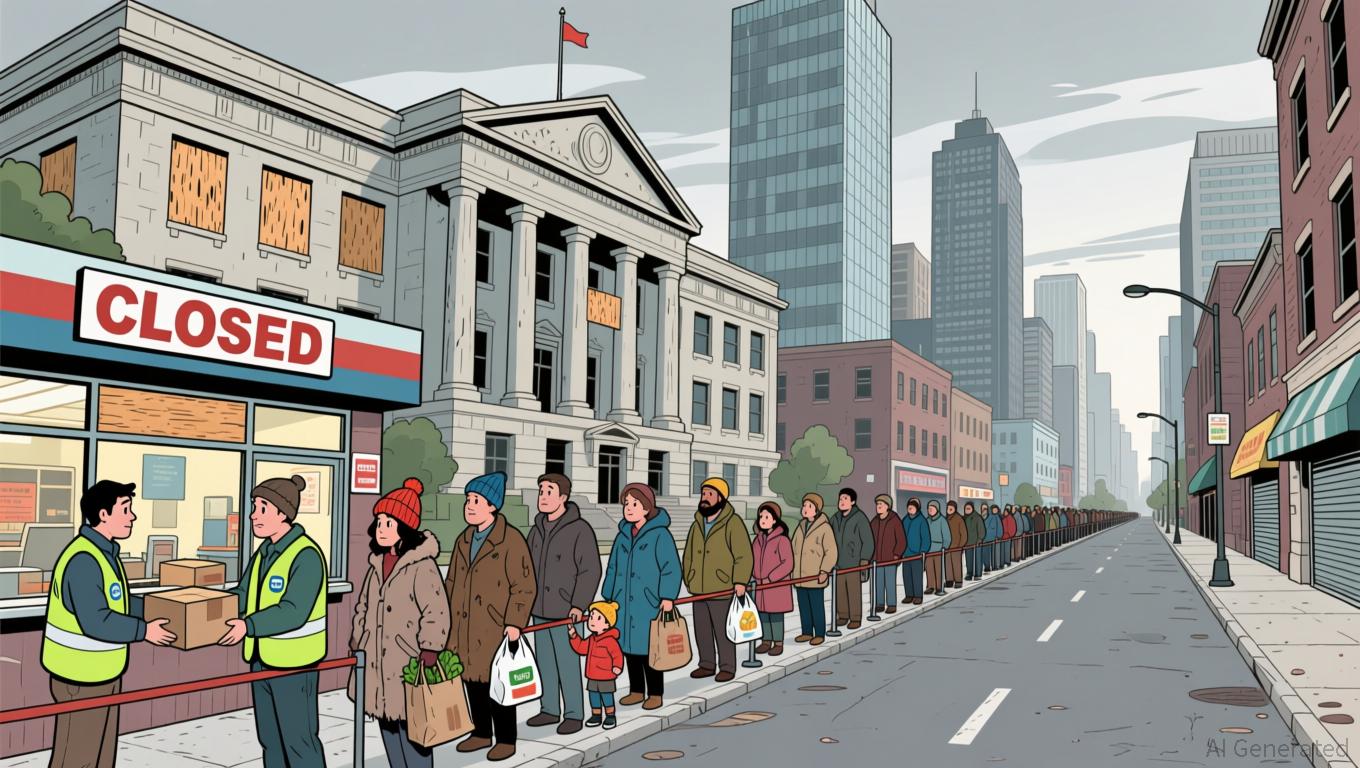Economic Impact Grows as Ongoing ACA Funding Stalemate Prolongs Historic Shutdown
- U.S. government shutdown hits 36 days, breaking 2019 record as ACA funding deadlock worsens economic and social impacts. - 42 million Americans face reduced SNAP benefits, while airlines and federal workers endure disruptions amid $30B/week economic losses. - Political gridlock persists with Trump rejecting negotiations and Democrats demanding ACA subsidy guarantees, risking permanent GDP drag. - Analysts warn prolonged shutdown could spill into private sector activity, with Treasury acknowledging "unpre
The ongoing U.S. government shutdown has now reached its 36th day, breaking the previous record set in 2019 and becoming the longest in American history. The economic and social consequences are worsening daily. House Speaker Mike Johnson has expressed a "less optimistic" view about a quick resolution, as talks between Democrats and Republicans remain stalled over funding for Affordable Care Act (ACA) subsidies and the reopening of federal agencies, according to
Goldman Sachs has cautioned that the economic impact could be historic, estimating a 1.15 percentage-point reduction in GDP growth for the fourth quarter.

The political stalemate appears to be deepening. In a CBS interview, President Donald Trump reaffirmed that he would not enter negotiations until the government is reopened, labeling Democrats as "extortionists" and criticizing the ACA as "terrible," as reported by Fox5DC. Senate Democrats have blocked 14 attempts to reopen the government, insisting on guarantees for ACA subsidies before agreeing to any deal, Fox5DC also reported. Senate Majority Leader John Thune, R-S.D., has encouraged Republicans to consider ending the filibuster to circumvent Democratic opposition, a step Senate Republicans have traditionally avoided, according to Fox5DC.
Social welfare programs are among those most severely affected. The Department of Agriculture initially held back $8 billion in SNAP benefits until a federal court ordered partial payments to resume by November 5, according to
The aviation industry is feeling the strain as well. Transportation Secretary Sean Duffy has warned that airport delays will worsen due to staffing shortages, with Newark Airport already experiencing ground delays, Fox5DC noted. Executives at Allegiant Air have warned that continued disruptions could jeopardize Thanksgiving travel, and United Airlines CEO Scott Kirby has voiced concerns about safety risks from understaffed TSA and air traffic control teams, according to
Experts are split on the long-term effects. The Congressional Budget Office (CBO) projects that the shutdown could result in $7 billion to $14 billion in permanent economic losses, though
With both sides firmly entrenched, the effects of the shutdown may go beyond economic statistics. Jonathan Millar of Barclays remarked, "This time could be different," given the current economic vulnerability and the unprecedented magnitude of the crisis, according to
Disclaimer: The content of this article solely reflects the author's opinion and does not represent the platform in any capacity. This article is not intended to serve as a reference for making investment decisions.
You may also like
Sam Altman states that he does not wish for the government to rescue OpenAI in the event of its failure
Ford executives are said to be considering discontinuing the F-150 Lightning
Google plans to purchase carbon credits from a large-scale reforestation initiative in the Amazon.
Amazon introduces a Kindle Translate service enhanced by AI for authors of e-books